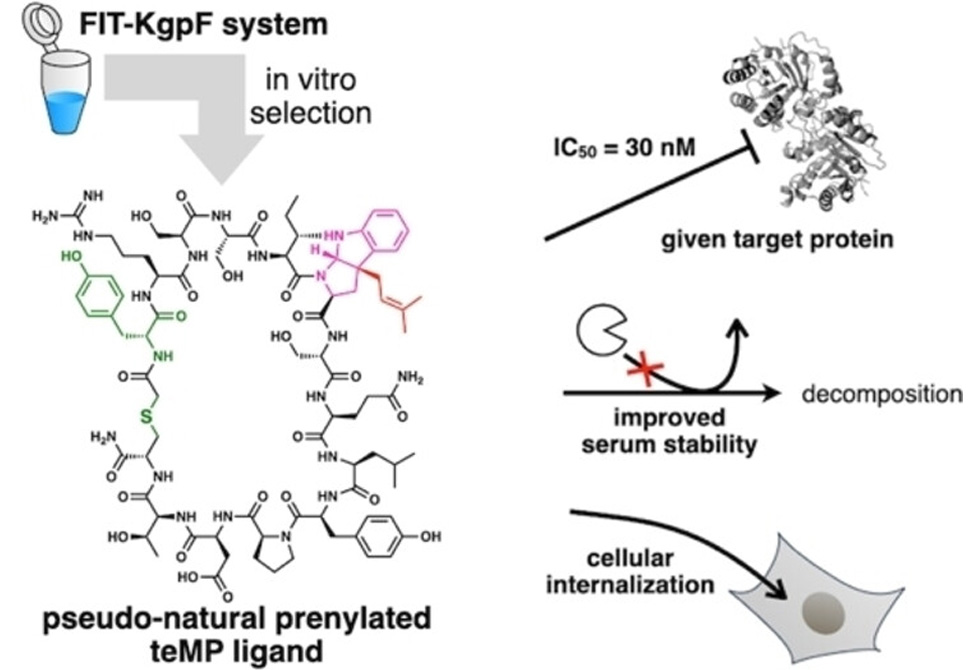Macrocyclic Peptide Ligands
Reflecting work in the Suga and Goto Groups
Prenylation of peptides is widely observed in the secondary metabolites of diverse organisms, granting peptides unique chemical properties distinct from proteinogenic amino acids. Discovery of prenylated peptide agents has largely relied on isolation or genome mining of naturally occurring molecules.
To devise a platform technology for de novo discovery of artificial prenylated peptides targeting a protein of choice, members from the Hiroaki Suga and Yuki Goto groups at the University of Tokyo, published in Angewandte Chemie, have integrated the thioether-macrocyclic peptide, teMP, library construction/selection technology, so-called RaPID, Random nonstandard Peptides Integrated Discovery, system, with a Trp-C3-prenyltransferase KgpF involved in the biosynthesis of a prenylated natural product. This unique enzyme exhibited remarkably broad substrate tolerance, capable of modifying various Trp-containing teMPs to install a prenylated residue with tricyclic constrained structure.
The group members constructed a vast library of prenylated teMPs and subjected it to in vitro selection against a phosphoglycerate mutase. This selection platform has led to the identification of a pseudo-natural prenylated teMP inhibiting the target enzyme with an IC50 of 30 nM. Importantly, the prenylation was essential for the inhibitory activity, enhanced serum stability, and cellular uptake of the peptide, highlighting the benefits of peptide prenylation.
This work showcases the de novo discovery platform for pseudo-natural prenylated peptides, which is readily applicable to other drug targets.


